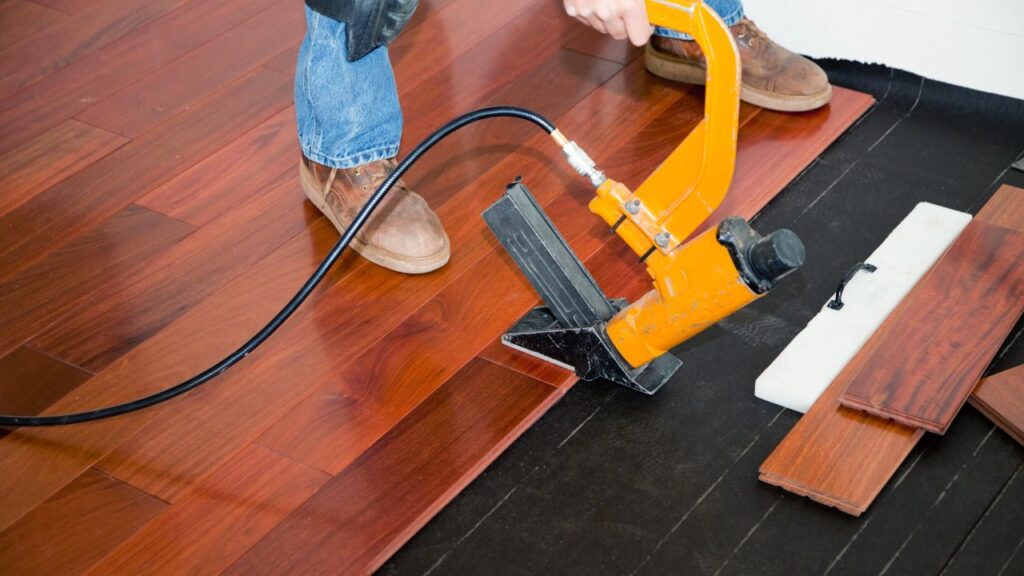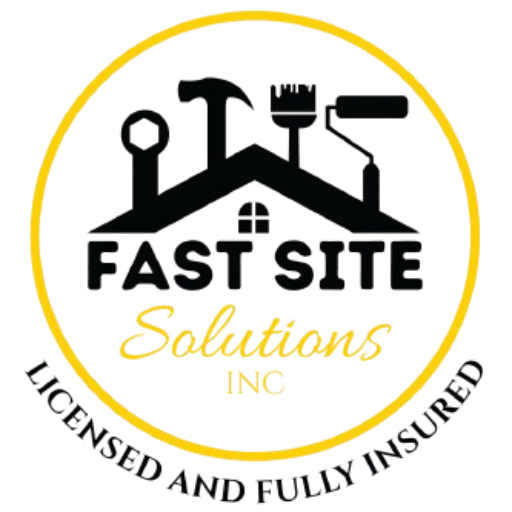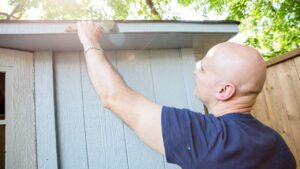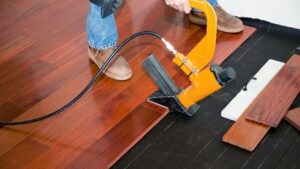If you’re thinking of upgrading your floors to classic hardwood, you’re in the right place. Hardwood floors offer a timeless look, durability, and easy maintenance. But before you make the leap, it’s important to understand the costs involved. This guide will break down everything you need to know about the costs of installing hardwood floors.
Hardwood Floor Installation Costs
First and foremost, let’s address the question on everyone’s mind: How much does it cost to install hardwood floors? Well, it’s not a one-size-fits-all answer. The cost can range significantly depending on various factors. On average, you could be looking at anything between $2,469 and $7,033. In some cases, if you’re opting for a large project or high-end materials, the costs could climb up to $12,000 or more.
One of the biggest cost determinants is the cost per square foot. This usually ranges from $6 to $25 for both materials and labor combined. Some estimates put it between $12.77 and $16.19 per square foot. But remember, these are just averages. The actual cost can vary based on your specific circumstances.
Factors Influencing Installation Costs
So, what makes the cost of hardwood floor installation vary so much? Several key factors come into play. The first is the type and quality of hardwood you choose. There’s a wide range of hardwood materials available, with each carrying its own price tag. The higher the quality of the wood, the more you can expect to pay.

Next up is labor. This includes the rates charged by the professionals doing the installation. The complexity of the installation can also affect these costs. For instance, installing hardwood floors on a staircase or around complicated floor layouts will require more time and skill, thus raising the cost.
Cost Per Square Foot: Materials & Labor
As we’ve mentioned, the cost per square foot is a significant factor in the total cost of installing hardwood floors. But what does this cost include? Primarily, it’s the cost of the materials—the hardwood itself—and the cost of labor.
The price of hardwood can vary widely. The type of wood you choose, its quality, and the finish you want all play a role in determining the price. For instance, common types like oak and ash tend to be more affordable, while exotic woods like mahogany or Brazilian cherry are more expensive.
The labor cost, on the other hand, depends on the professionals you hire. Skilled, experienced contractors might charge more than those with less experience. However, hiring a seasoned professional can ensure a flawless installation, potentially saving you money on future repairs or replacements.
Another aspect of labor cost is the complexity of the installation. If your floor layout is straightforward, labor costs might be on the lower end of the spectrum. But if the job requires intricate cuts or installation around obstacles, the cost could go up.
It’s important to note that these costs are intertwined. High-quality materials require skilled installation to ensure they look their best and last for years to come. Thus, when budgeting for your hardwood floor installation, consider both these factors in tandem to avoid any unexpected surprises.
Types Of Hardwood Flooring & Their Costs
When it comes to hardwood flooring, variety is the name of the game. From domestic staples like oak and maple to exotic imports like teak or bamboo, there’s a hardwood to suit every style and budget. Let’s explore a few popular options and their respective costs.
Oak is a common choice for its durability and attractive grain patterns. You can expect to pay between $3 and $8 per square foot for oak, not including installation costs. Maple, another popular choice, is slightly more expensive due to its hardness and light color, costing between $4 and $9 per square foot.
If you’re looking for something a bit more luxurious, consider mahogany or teak. These woods are known for their rich colors and exceptional durability. However, these benefits come with a higher price tag, often costing between $8 and $14 per square foot.
For those with more adventurous tastes, bamboo or cork might be the answer. These eco-friendly alternatives have a unique, modern look and are comparable in price to traditional hardwoods, with costs ranging from $4 to $8 per square foot.
Additional Costs: Subfloor Preparation, Trim, and Old Flooring Removal
When budgeting for hardwood floor installation, don’t forget to account for additional costs. These can include subfloor preparation, trim installation, and removal of old flooring.
Subfloor preparation is crucial for a successful installation. The subfloor must be clean, level, and dry before the hardwood is laid. Depending on the current state of your subfloor, preparation costs can range from $0.60 to $4.00 per square foot.
Trim and moldings are often overlooked but play a key role in giving your new floors a finished look. These extras can add anywhere from $1 to $2.50 per linear foot to your total cost.
Lastly, if you’re replacing old flooring, removal and disposal costs can add to your project budget. Depending on the type of flooring and the amount to be removed, you could be looking at an additional $0.20 to $2.00 per square foot.
DIY vs. Professional Installation: Pros & Cons
Installing hardwood floors is a significant investment, so it’s essential to consider whether to tackle it as a DIY project or hire a professional.
DIY installation can save you a significant amount on labor costs. However, it requires a certain level of skill and the right tools. It can also be time-consuming, especially for larger areas or complex layouts. If you’re not confident in your abilities, it might be best to leave it to the professionals.
Professional installation, while more expensive, offers peace of mind. Experienced professionals can ensure the job is done correctly and efficiently, saving you future headaches and potential repair costs. They can also handle any unexpected issues that might arise during the installation.
Ultimately, the choice between DIY and professional installation depends on your budget, skill level, and how much time you’re willing to commit to the project.
Tips For Saving On Hardwood Floor Installation
While installing hardwood floors can be a significant investment, there are ways to keep costs in check. Here’s how you can save on your hardwood floor installation.
Firstly, consider the type of hardwood you’re going to install. As we mentioned earlier, the price of hardwood varies widely depending on the type of wood. Opting for more affordable options like oak or ash can help you save substantially. However, don’t compromise on quality to save a few bucks. Remember, a quality hardwood floor is a long-term investment that can last for years with proper maintenance.
Secondly, shop around for the best deal. Just like any other product or service, the cost of hardwood and labor can vary significantly from one store or contractor to another. Take your time to compare prices and choose the one that offers the best value for your money. Don’t forget to check online too, as you might find some great deals there.
Next, consider doing some of the work yourself. If you’re handy and have the necessary tools, you can save on labor costs by doing some tasks like removing the old flooring or preparing the subfloor. However, be sure you know what you’re doing to avoid costly mistakes.
Lastly, plan your installation during off-peak seasons. Hardwood floor installation services may offer discounts during slower periods to attract more business. This can be a great way to save on installation costs.
Hardwood Floors Impact On Home Value
Now, you might be wondering, are hardwood floors worth the investment? The answer is a resounding yes! Hardwood floors can significantly increase the value of your home. Here’s why.
Firstly, hardwood floors are highly desirable. Many home buyers appreciate the timeless beauty and durability of hardwood floors, and they’re willing to pay a premium for it. This means homes with hardwood floors often sell faster and for more money than homes without them.
Secondly, hardwood floors are long-lasting. Unlike carpets that need to be replaced every few years, hardwood floors can last a lifetime with proper care. This means you’re not just investing in your home’s current value, but its future value as well.
Lastly, hardwood floors offer versatility. They come in a variety of styles and colors, making it easy to match them with any decor. This makes homes with hardwood floors appealing to a wide range of buyers.
So, while installing hardwood floors may seem expensive upfront, the potential return on investment makes it a worthwhile expense. Not only will you be able to enjoy the beauty and durability of your new floors, but you’ll also be increasing your home’s value in the process.





